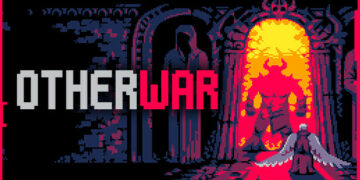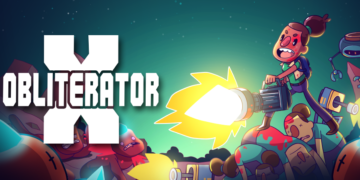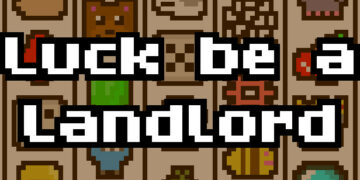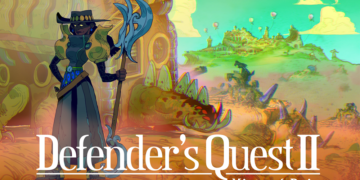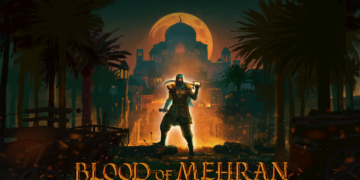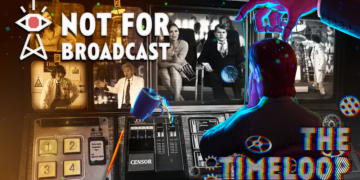Back Then by Octopus Embrace offers a heartfelt narrative-driven experience unlike many others in the adventure genre. Through the eyes of Thomas Eilian, an elderly writer battling Alzheimer’s Disease, the game ventures into profound themes of memory, identity, and the fragility of the human mind. It’s a story that strives to resonate emotionally while breaking ground in its portrayal of a debilitating illness. However, while its intentions are noble, its execution struggles to match its ambition.
A Fragmented Mind, A Fragmented Journey
The game’s setting—Thomas’s mind—is a striking metaphor for Alzheimer’s. Players explore fragmented environments symbolising pieces of his life, from moments of joy to haunting regrets. This structure effectively conveys the confusion and emotional weight of memory loss, giving players a visceral sense of Thomas’s disorientation.
However, the slow pace and lack of direction can lead to frustration. The game provides minimal guidance on what to do next, leaving players to wander aimlessly at times. While this mirrors the confusion of Alzheimer’s, it risks alienating players who might prefer more structured exploration.
Immersion at a Cost
Back Then aims for immersion, but its mechanics may feel clunky to some players. Thomas navigates the world in a wheelchair, and the controls are intentionally cumbersome to reflect this limitation. While this design choice adds realism, it may frustrate players accustomed to more fluid exploration mechanics.
The game’s atmosphere, however, is well done. The music enhances the emotional tone, wrapping the player in a melancholic yet soothing soundscape. Voice acting is a standout, with performances that bring authenticity and depth to the characters in Thomas’s mind—a rare quality in indie titles. These elements elevate the experience, drawing players deeper into Thomas’s story.

Bold Themes, Rough Execution
What sets Back Then apart is its bold focus on Alzheimer’s and its effects. Few games dare to tackle such topics, and fewer still do so with this level of sincerity. The narrative encourages reflection on identity and memory, challenging players to empathise with those living with the disease.
However, the game’s rough edges detract from its impact. Clunky mechanics, a lack of polish, and slow pacing make the experience less accessible to a broader audience. With more refined gameplay and a touch of levity, Back Then could have reached greater heights while maintaining its emotional core.
The Positives and Drawbacks
What Works
- Narrative Depth: A poignant story that sensitively portrays dealing with Alzheimer’s.
- Immersive Atmosphere: Music and voice acting that enhance emotional engagement.
- Unique Perspective: A rare and valuable exploration of memory and identity.
What Could Be Better
- Clunky Controls: Wheelchair mechanics add realism but detract from player comfort.
- Slow Pace: Minimal guidance can make progression frustrating.
- Lack of Polish: Visual and mechanical rough edges hinder the overall experience.

Final Verdict: A Brave, Flawed Experience
Back Then is a brave and heartfelt attempt to tell a meaningful story about Alzheimer’s Disease. It succeeds in evoking empathy and encouraging reflection, but its gameplay limitations and rough execution may deter some players.
For those who value narrative-driven games and are willing to look past its imperfections, Back Then offers a memorable, albeit challenging, journey. It’s a game that dares to explore uncharted territory, and while it stumbles along the way, its ambition and emotional depth make it a title worth experiencing.



